#russian church
Text

Sofia, Bulgaria
#photography#analog#photographers on tumblr#la vie en rose#original photographers#analog photography#photooftheday#la vie est belle#original photography blog#photography on tumblr#la vita è bella#la vie boheme#la dolce vita#indie#retro#girly#vintage#bohostyle#boho#bohemian#bohochic#aesthetic#sofia#bulgaria#bugarska#russian church#june#spring#orthodox#orthodox church
23 notes
·
View notes
Text
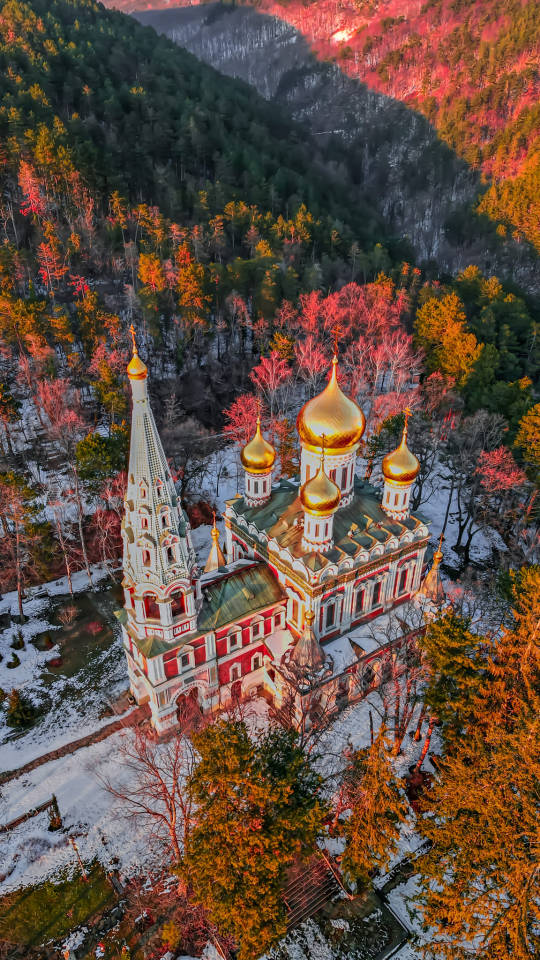
Shipka // Kazanlak City // Balkan // Bulgaria
#bulgaria#bg#balkan#trip#travel#bulgara realty#shipka#church#russian church#kazanlak#world history#history#old memories#memory
41 notes
·
View notes
Text
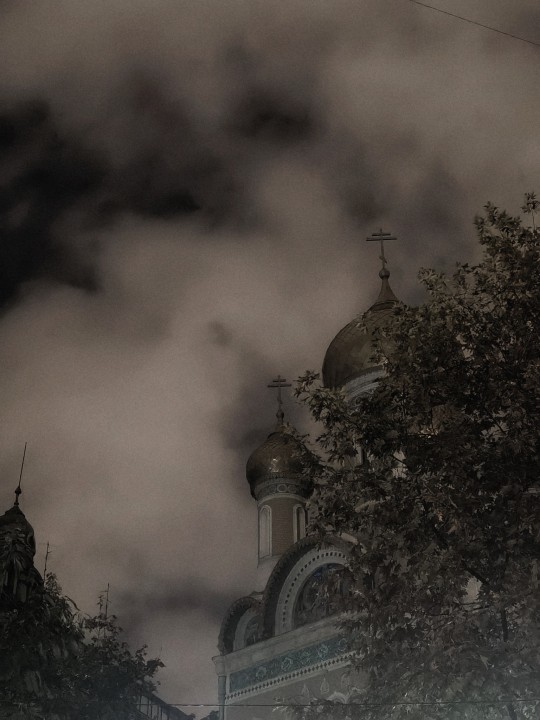
november night
#romania#romanian artist#bucharest#bucurești#orthodox church#Russian church#autumn night#eerie#Eastern Europe#balkans#visitromania#travel
15 notes
·
View notes
Text
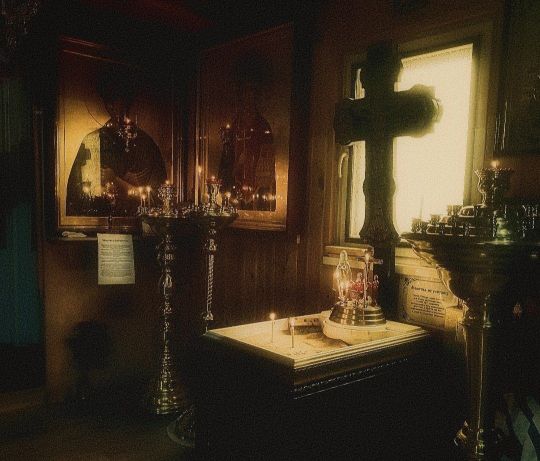
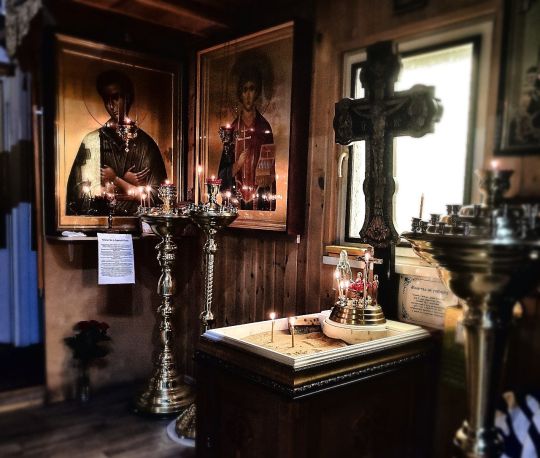
#русский tumblr#русский блог#блог#русский тамблер#фото#фотография#фотографии#orthodox christianity#christianity#Russian#russian church#russian culture#christian iconography#iconography#christian church#Church#Beautiful#Православие#Церковь#☦️
4 notes
·
View notes
Text
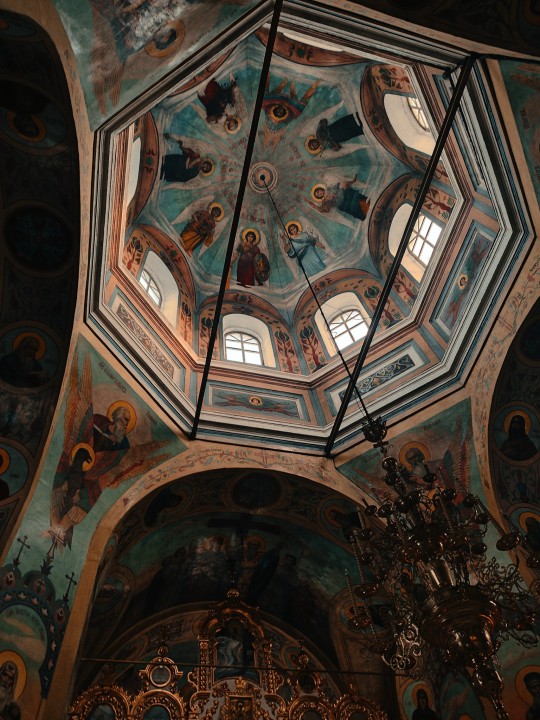
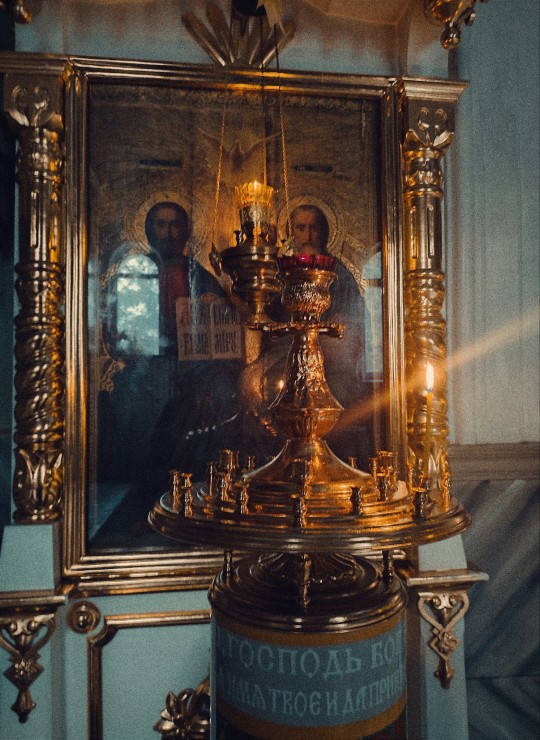
#christianity#orthodox christianity#jesus christ#church#russian church#spirituality#holy spirit#aesthetic#candles#beautiful#lighting#photography#my photos#siberia
3 notes
·
View notes
Text

2 notes
·
View notes
Text
14:00 🙄
nearest church to my home


#life in the north#it's dark and will be darker#orthodox church#photo of a church#my life#saint petersburg#russia#russian church
23 notes
·
View notes
Text

Шлиссельбург
#россия#шлиссельбург#православная церковь#лето#russia#russian orthodox#russian church#summer#shlissel`burg
4 notes
·
View notes
Text

Western doors of the Cathedral of the Nativity, Suzdal. 13th Century.
10 notes
·
View notes
Text
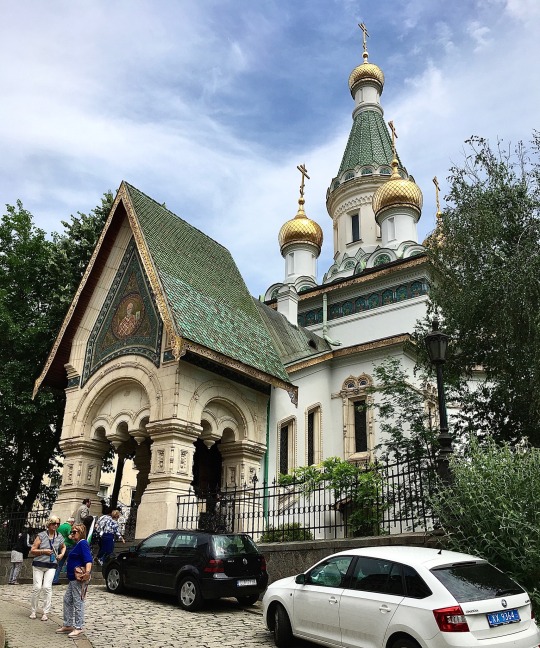
Russian church in Sofia. June 3rd, 2017 (iPhone SE)
#photography#sofia#bulgaria#church#religion#religious architecture#religious art#orthodox christianity#christianity#europe#balkan#cobblestone street#street#russian church
5 notes
·
View notes
Text

#wooden church#russia#russian church#landscape#penandink#penandinkart#drawing#illustration#coloredpencil#gouache#church drawing#original art
1 note
·
View note
Text
LA Times: Moonies in the U.S.S.R. : The Rev. Moon and his church are reaching out to disenchanted young people. Some are seeking new meaning in their lives. Others just want a chance to escape. (1991)
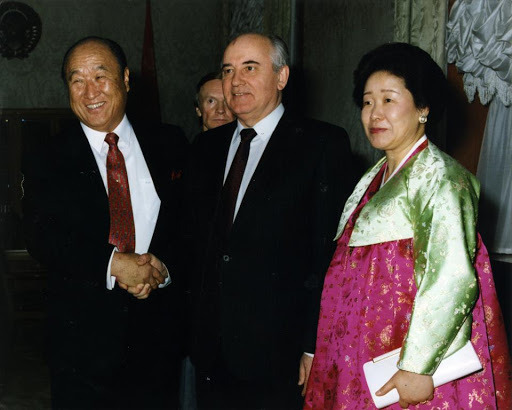
▲ Pictured: Sun Myung Moon Moon, Mikhail Gorbachev, and Hak Ja Han
BY ELIZABETH SHOGREN
MARCH 4, 1991
MOSCOW —
Sergei Komarov, a mathematics major at Moscow State University, spends his free time studying videotapes of speeches by the Rev. Sun Myung Moon and his followers and poring over literature about Moon’s controversial religious movement.
The 18-year-old Muscovite first encountered the group last spring after he saw a flyer at his school urging anyone who spoke English to apply for free trips to the United States.
In July, he and 100 other students traveled to America for a religious conference and sightseeing. They visited the Statue of Liberty and the monuments in Washington and attended a religious seminar at New York state’s Lake George. Seven months later, Komarov is preparing to become the first Soviet teacher of “The Principle,” which forms the belief structure of Moon’s Unification Church.
“The basic (tenets) seemed to be true from the first days,” said Komarov, a gangly young man with rosy cheeks and slate-colored eyes. “I had many questions, but they’ve all been answered. Now I can say I’m totally convinced.”
Moon is making a big advance into the Soviet Union, where the moral and ethical structure of society is collapsing after being propped up for four generations by communist ideology. Soviet young people are tired of endless talk about reforms that do not improve their lifestyles or give them any security for the future. Disaffected with their own country and searching widely for meaning for their lives, they are susceptible to the message of Moon’s missionaries.
Like many of the new Soviet converts, Komarov had been studying philosophy and religion on his own before he was introduced to “The Principle,” which suggests that Moon--a charismatic religious leader, ardent anti-communist and business magnate--is the second Messiah.
“Moon has brought a lot of truth to my mind and heart that I could not get from philosophers,” Komarov said.
Violetta Braiko, a 22-year-old journalism major at Moscow State University who is interested in the movement, agreed: “In such an atmosphere as we have now in the Soviet Union, Unification is a savior.”
Since last summer, 1,400 students from the most elite universities and institutes in Moscow, Leningrad, Kiev and Tashkent have traveled to the United States as Moon’s guests. A total of 1,600 more will go before the end of the year. About 800 are pursuing studies in Moon’s theology and hundreds more have participated in advanced seminars, according to Myra Stanecki, a San Francisco Bay-area native who works as a missionary in Moscow for CARP, Moon’s college ministry.
The Soviet Union has rapidly become the new frontier for CARP, the Collegiate Assn. of the Research of The Principle, which claims members in 70 countries.
“The Soviet Union is now our main focus, that’s for sure,” Stanecki said.
Moon’s followers have offices in Leningrad and Moscow and plan to open offices in Kiev, the capital of the Ukraine, and Tashkent, the capital of Uzbekistan.
During a meeting last April with Soviet President Mikhail S. Gorbachev, Moon declared his commitment to finance exchange programs for Soviet and foreign students and to invest in new industrial ventures to help the collapsing Soviet economy. Moon’s movement has been given almost free rein--despite his long battle against communism.
“We expected a struggle in the Soviet Union, but there has been a great response from the universities and the Ministry of Higher Education,” Tony Devine, deputy director of CARP, said in an interview at the group’s New York headquarters.
Soviet universities have welcomed the missionaries and given them classrooms to teach about the movement, which has been criticized in many countries as a cult that allegedly “brainwashes” young people.
Until now, only English-speakers have been able to join the classes because none of the dozen or so missionaries who have been teaching in the Soviet Union speaks Russian. But fledgling converts like Komarov want to change that.
“There are many students who are willing to teach these ideas, but our problem is that we don’t know enough yet. This is what I’m working on right now,” he said.
Komarov even moved in with some of the “Moonies,” as he calls them, to better understand the depth of their faith.
“One of the most convincing things about this movement was not just the ideas, but the very way of life its members are leading,” Komarov said. “So I decided to move into the center just to be closer to them.”
The Russian Ministry of Higher Education, Leningrad City Council and Novosti, the president’s official information agency, are among the powerful organizations that have co-sponsored the trips abroad for students to study Moon’s theology.
“Soviet organizations do it because they want to send young people abroad, not because they want to help Moon,” said Igor Drobyshev, a Novosti official who accompanied the students on one trip to America. “Novosti thinks there’s nothing about it that would be harmful to Soviet students. If someone offers a trip to a Soviet student, he will go. So what if it has a religious basis? Going abroad is the sweetest candy for a Soviet person.”
Braiko, the journalism student, explained that Soviet young people--even those without deep religious convictions about Moon--also have flocked to Soviet CARP because no other organization gives students a chance to gather and discuss deep ideas.
Soviet universities do not have the campus atmospheres or extracurricular activities common in American colleges. The Komsomol, the Communist youth league, used to unite students but has been all but abandoned.
“It’s not all about faith,” Braiko conceded. “It’s also about hanging out together.”
Drobyshev, meanwhile, said he doubted Soviet students can be converted.
“We’re an atheist country,” he said. “But if they think they can find followers here, let them try.”
Some of the students who went to America came back with mixed feelings and some who later dropped out of the movement said they were spooked by Moon’s followers.
“They were very good people, but at the same time, there was something strange about them,” said Irina Bak, a 20-year-old student at Moscow Management Academy, soon after she returned from America.
She recalled: “When we talked with American people about Moon, they were frightened. Before they heard we were with Moon, they were friendly and frank. But afterward, they did not want to have anything to do with us.”
But Olga Kassyanenko, 18, a business major at the Moscow Institute of National Economy, said she was immediately attracted to Moon’s religion because it stresses a good life while on Earth, rather than emphasizing that peace comes in the afterlife, as the Russian Orthodox Church does.
“In this faith you can build heaven on Earth,” Kassyanenko said with a wide, dimpled smile. “This gives me great hope.”
Kira Danilova, 19, a student at the prestigious Moscow Institute of History and Archives, said she was immediately comfortable with most of the tenets of the Unification Church. But she had a difficult time believing that Moon is a Messiah until she went to a three-week seminar in Hungary, last month.
The other point that Danilova and other Soviet students have trouble accepting is that Moon arranges marriages for his followers.
“When I first heard about it, I was shocked, but then I started thinking that if it was Christ, I would agree without a doubt. If Moon is also the Messiah, then there’s nothing strange about it,” Danilova said.
Danilova, Komarov and Kassyanenko are among the several dozen students in Moscow who have actually accepted Moon’s theology. Hundreds more have not yet joined the church but are actively involved with its programs.
Some are interested because it offers them their only opportunity to travel abroad or to practice English with native speakers. Others are intrigued by the group’s ideas but are hesitant, Stanecki said.
Like many other Moscow university students, Lena Shevchenko took a Moon-sponsored trip last November because she couldn’t wait to see the United States, not because she had any interest in religion. But while listening to lectures, she was caught up in the ideas.
“In the Soviet Union, we never delve into religious questions,” said Shevchenko, 20. “So this opened something totally new.”
Shevchenko and others attracted to Moon’s message say the Unification Church has picked the right time to send missionaries to the Soviet Union, because young people are seeking something to give their lives meaning.
“It’s a time in the Soviet Union when it’s difficult just to exist,” Shevchenko said. “Maybe that’s why we’re so attracted to CARP--because it gives us some of the support we need.”
Anya Semeikina, a 25-year-old graduate student at Moscow State University, also likes the support she gets from her new friends in Moon’s organization.
“When I’m around them, I don’t think about what I won’t be able to buy in our empty stores--I think about big, important things,” she said.
“But we were raised with no concept of God. Religion was almost forbidden, so for us the main question is: Does God exist? Then we decide whether to accept what they say.”
For some, Unification theology is much more satisfying than that of the highly ritualistic Russian Orthodox Church, Russia’s predominant religion, according to Mikhail V. Nesterenko, 22, who did not go to America but who attended a 100-hour course about the movement here last fall.
“The Russian Orthodox Church is so complicated, especially since the sermons are in 11th-Century Russian, which we can’t understand,” said Nesterenko, who quit his job as a computer programmer to become a history student at the Moscow Institute of History and Archives. “I wanted a real religion that I can understand and that brings me toward God. And they (Moon’s missionaries) can. With every lecture and every smile, they bring me closer.”
Still, Vasily Romantsov, a 20-year-old journalism student at Moscow State University, said he felt like the missionaries were trying to take advantage of Soviet students’ desperation to travel and see the world, especially the United States.
“We have no illusions; we know some students are using us as a chance to travel,” said Jack Corley, director of the Moon organization’s Soviet outreach.
To discourage this, before going on trips students are required to sign a release form declaring that they will not smoke, drink alcohol, use drugs, engage in promiscuous activity or visit friends or relatives.
“We don’t want them to go thinking it’s just a sightseeing trip,” Corley said.
Moon’s followers also were “trying to buy” the Soviet students by giving them scarfs, tape players, pens and $50 in spending money, Romantsov charged.
“But what I really didn’t like was the way the washed our brains,” he added. “The lectures washed our brains and filled in that Moon is the second Messiah.
“There’s something really wrong here, but it’s difficult to find out what. I don’t trust it, maybe because I’m from the Soviet Union,” he continued. “In our history we had Lenin, then Stalin, then Brezhnev and Khrushchev--each was the hero of the day. Now they say the new hero is Moon.”
#ussr#soviet union#moonies#carp#unification church in russia#russian church#anti-communism#sun myung moon#ideology#politics#unification church in europe#Myra Stanecki#jack corley#tony devine
0 notes
Text

#orthodoxy#orthodox christianity#orthodox#christianity#eastern orthodoxy#orthodox church#eastern orthodox#orthodox christian#church#greek orthodox#russian orthodox
344 notes
·
View notes
Text

Old church
We’ve burned Winter yesterday, yet the pile of snow in the yard tells me that it is still time for pleinair such as this.
Twitter | VK | INPRNT | Leave a tip
#artists on tumblr#it was freezing AND raining so I count this drawing as a win#oh the colors of russian spring! the whole 1.5 of them!#old church#pencil art#nature
170 notes
·
View notes
Text

Glory to the Hero by Nicholas Roerich
#nicholas roerich#art#symbolism#russian#russia#christianity#christian#religion#religious#europe#european#history#symbolist#church#churches#stained glass#saint#saints#hero#heroes#holy#spiritual#nun
194 notes
·
View notes

